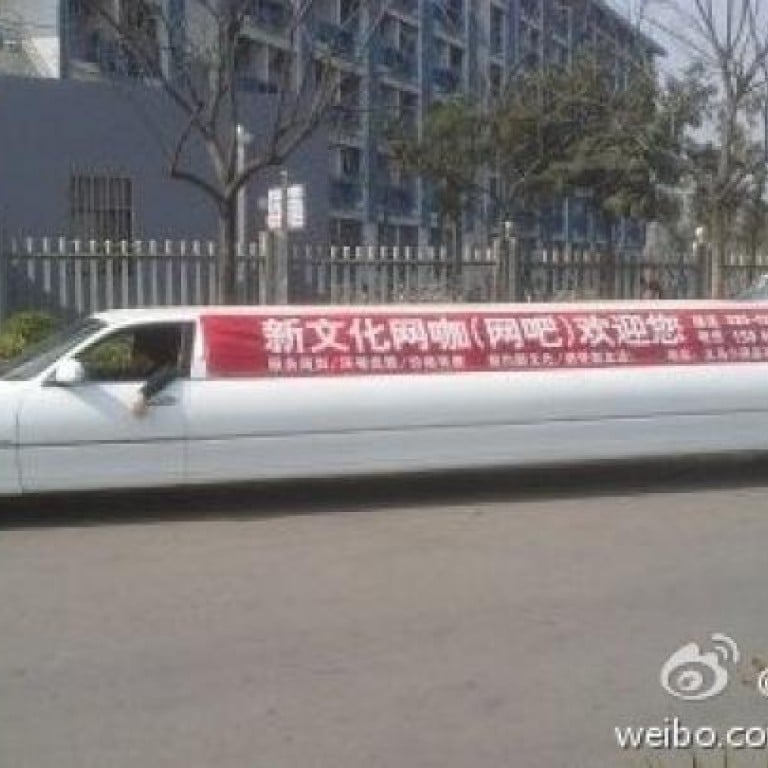
Internet cafe dispatches limousine to transport students
Other than weddings, Lincoln Limousines are seldom seen in mainland China, but an internet cafe in Nanjing has decided to use one to transport students in a bid to stand out from the competition, Xinhua reported on Sunday.
A 10-metre-long white Lincoln Limousine and a BMW 530i were seen parked in front of the north entrance of Nanjing Institute of Technology Jiangning campus on Saturday, Xinhua reported. A banner was hung across the Lincoln reading, “New Culture Internet Cafe welcomes you” followed by the company’s contact details.
As the internet cafe was located relatively far from the school it had started to provide transport to students to attract more customers, Xinhua said.
Xinhua said students usually took a free minivan to the cafe, but this was the first time the cafe had dispatched such high-end luxury cars. “The internet cafe is packed. Students choose to go there just to get a ride [in the Limo],” one student told Xinhua.
The estimated cost for the BMW is between 500,000 yuan to 700,000 yuan (HK$623,705 to HK$873,187) whereas different versions of Lincoln Limousine cost between 1,260,000 and 2,000,000 yuan (HK$1,571,736to HK$2,494,900) in China.
The internet cafe’s owner told Xinhua he had recently relocated his storefront and used the luxury cars to promote the move and familiarise students with the new address. “I really tried everything, but the price war has intensified,” he said. He told Xinhua he had borrowed the two vehicles from his friends.
Internet cafes have long been under fire in China. Many of them are located near schools and are condemned by parents for enticing students to play video and online games after school, distracting them from their studies.
Internet cafes in China began to flourish in the late 1990s when internet access was not yet available in most households. In recent years, however, their appeal has declined as home internet access has become more widespread.
The government is tightening regulations. In 2011, China shut down more than 130,000 illegal cafes in a six-year period.

